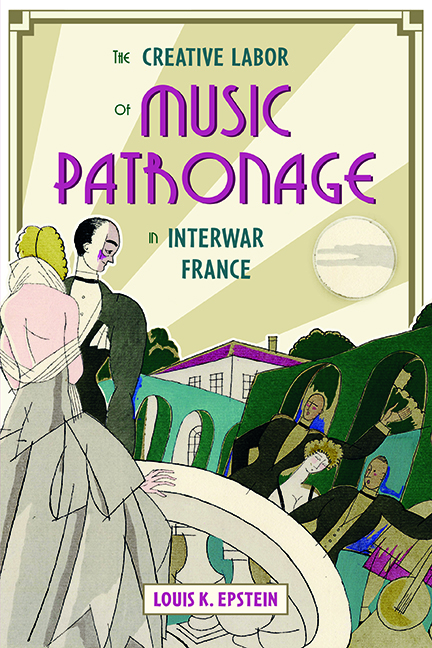Book contents
- Frontmatter
- Dedication
- Contents
- List of Tables
- List of Musical Examples
- Acknowledgments
- Abbreviations
- Introduction: Redefining Patronage
- 1 The Patronage Problem
- 2 Aristocratic Commissions
- 3 Entrepreneurial Patronage and Concert Dance
- 4 The Publisher as Patron
- 5 Jacques Rouché: The State’s Patron
- 6 Nationalizing Music Composition
- 7 Transatlantic Legacies
- Bibliography
- Index
- Music in Society and Culture
6 - Nationalizing Music Composition
Published online by Cambridge University Press: 26 May 2022
- Frontmatter
- Dedication
- Contents
- List of Tables
- List of Musical Examples
- Acknowledgments
- Abbreviations
- Introduction: Redefining Patronage
- 1 The Patronage Problem
- 2 Aristocratic Commissions
- 3 Entrepreneurial Patronage and Concert Dance
- 4 The Publisher as Patron
- 5 Jacques Rouché: The State’s Patron
- 6 Nationalizing Music Composition
- 7 Transatlantic Legacies
- Bibliography
- Index
- Music in Society and Culture
Summary
One year before the opening of the 1937 World's Fair in Paris, Albert Roussel wrote to the fair's commissioner to ask for money. As chair of the committee tasked with organizing musical events at the fair, Roussel indignantly observed that the Paris municipal council had granted 23 million francs to fund the creation of new visual art for the fair while allocating nothing for new music. In stiffly bureaucratic language, he asked the commissioner, Edmond Labbé, to intercede with the council on behalf of French composers. “Would it not be fair,” Roussel argued, “that Music shares in this munificence [so that] the Plastic Arts are not the exclusive beneficiaries of this generous initiative?” Even as he posed this delicate question, Roussel must have known that the visual arts had long been the near exclusive beneficiaries of state commissions. Since the advent of the Third Republic, the state's music patronage had included subventions for ensembles, funding for conservatories, and support for musicians touring as cultural diplomats, but always at levels disproportionately lower than that accorded the plastic arts. Only rarely had the state supported music composition. Yet Roussel's call for a more equitable approach to state support for music was hardly revolutionary. Both within and outside of the French government, others shared Roussel's vision for increased state sponsorship of music composition. Within three years, the state would begin to reverse its inequitable approach, embarking on two ambitious sets of occasional commissions and inaugurating a groundbreaking annual commissions program. Roussel and dozens of other composers were about to experience the push and pull of working with a powerful new patron.
When he made his pitch to Labbé, Roussel knew well that previous efforts by government officials to foment music composition had come in three flavors. There were the rare commissions to mark occasions of grave importance (like state funerals) or ostentatious celebration (like coronations). Instances like these depended on the ad hoc actions of high-ranking officials rather than coordinated efforts by ministries or legislative processes. In the late 1830s, for instance, Minister of the Interior Adrien de Gasparin commissioned one piece per year, starting with Berlioz's Requiem, and Berlioz received a commission from another minister, the Comte de Rémusat, for the Symphonie funèbre et triomphale.
- Type
- Chapter
- Information
- The Creative Labor of Music Patronage in Interwar France , pp. 154 - 189Publisher: Boydell & BrewerPrint publication year: 2022



